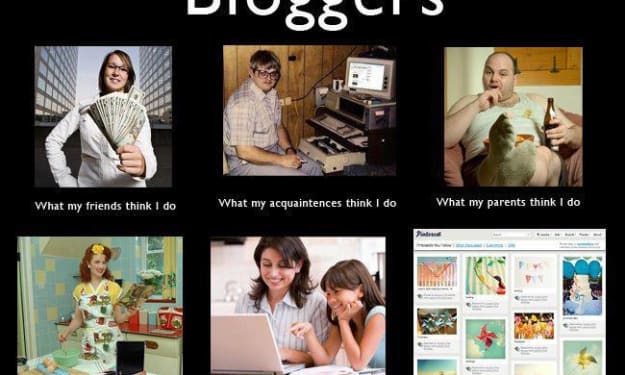How Can I Become a Better Writer?
Read and write more

How does one improve their writing skills?
The short of it is to learn proper editing. I define editing as the ability to transform a dry account of sequential events into a story worth reading, but nothing is ever simply black and white, is it?
I consider myself a solid writer. I have been writing professionally since 2011 and have published over 30 titles including numerous short stories, fanfiction, and some novels; I have also experienced various types of publishing, and have also been blogging professionally for about 3 years, and through several platforms. Furthermore, I am a freelance editor, and I have worked with numerous editors in order to learn the craft, so I’ve been fortunate enough to view reading, writing, and editing from innumerable perspectives, which has allowed me to build my own style, which is, of course, ever adapting to a changing society and business technology world.
Does that answer the question? Probably not….
First, one must acknowledge the kind of writing in question; this doesn’t mean genre or target audience, but rather platform.
Some platforms include journal writing, essays, blogging, fiction, informative, and so on. Each platform will require a specific block of ideas pertinent to itself. For instance; blogging is usually informal; when I blog, I normally write as though I’m talking to a friend. You're all my friends!
Since there are so many kinds of writing, a person wishing to learn the ins and outs of a specific platform ought to research that platform specifically, but then there are some general guidelines for improving any kind of writing.
The top two most effective ways to improve writing skill are to read and write a lot.
Want to be a professional blogger? Go read tons of blogs, and just write out tons of ideas, but don’t publish those ideas! Don’t publish your blog posts until you have a grasp of proper blogging techniques. Just practice writing blog posts to your word program. Feel free to show them to friends, family, and writing groups. Feedback of any sort is always valuable.
Want to be a professional novelist? Go read tons of novels, and then just start writing out your own stories, but don’t publish those stories until you’ve edited, employed beta-readers, and hired a professional editor! Just write those stories for you, and keep them tucked away for some time. Then, after you have a grasp on writing novels, show them to friends, family, and writing groups.
Look, the truth is that writing is like everything else in the world; you won’t be good at it on your first try. Want to play professional basketball? You’ll never just walk onto the Chicago Bulls if you’ve never played ball before, right? You’ll never build a perfect house if no one’s taught you how to make sure your foundation is level, and your walls are square, feel me?
You’ll never be a good writer if you’ve never practiced writing before, so practice writing, and pit your writing against whatever is popular at the time.
Want to be a fantasy author? Just take a deep breath, relax, and write out your idea. Don’t know the beginning? Skip it. Is the middle a bit iffy? No biggie. Just get it all down, and then go back through, and clean it up. Add what you need to add, remove what doesn’t need to be there, and modify the rest.
Then, get away from it for a while, and read a fantasy novel. Go back to your story, touch it up, and find some beta-readers. Once you get some feedback from them—these are people who love reading rough drafts—apply their changes, or don’t if you don’t like their ideas, but the goal is to get a sense of how your potential audience will feel about your story.
Finally, hire an editor. The best way to become a good writer is to become a good editor. Unfortunately, there are good and bad editors, and until you know the difference, you may get swindled. It’s just part of the game, but even a crummy editor can give you some insights!
What’s important to know is that editing is more than correcting misspelled words, bad grammar, and punctuation. Editing is an art. Editors are supposed to change the writer’s idea into the reader’s adventure. They are the intermediaries who modify a sequential account of events to entertain or inform readers.
Editing is not only for novels, though. It’s just as important to edit your business article for your audience, your food blog for your foodie fans, and your healthy living book for your prospective health nuts. Editing is employed in order to best portray ideas, emotions, and information to an audience, a specific audience, who is not in your head.
Think about it. How many times have you been standing there, talking to your wife, brother, daughter, friend, whatever, and they ask you to clarify your statement, point, or idea? What you think, say, and write, only makes sense to you, and organic writing is basically the just transfer of thoughts to paper—you write as you think.
Since your audience is not in your head, you need a professional who specializes in translating concepts for a broad audience. You can, of course, learn to become that professional, and by improving your editing skills, you will improve your writing skills, but you must improve your storytelling skills, too!
That’s where reading a ton of content comes in handy. Just keep in mind that the version of The Stand that you are reading is the version altered by a team of editors and not the version that King wrote, but he never talks about that, does he? Just the same, read through your favorite content; read it as a reader, a writer, and an editor, and as you’re reading, think about how you can portray the same concepts and ideas for your target audience.
Like everything in the world, you must practice writing ad nauseam. Write until the words are coming out of your ears. Spend the first few years releasing your content for free on a personal blog. Thank your readers and ask for feedback, and keep in mind that your audience is giving you feedback because they know what they like, and it’s your job to give your audience what they want, not what you enjoy.
Obviously, you have to enjoy writing, but that’s exactly my point; write what you want to write, and then edit the content for your audience, but you can’t know what your audience wants if you don’t have an audience, right? A discussion for another time linked here.
If you want to improve your writing, just write, and get everybody in the world to see it, and invite their comments. Don’t deal with negative people. Anyone can let you know that they don’t like your work without insulting you, so just don’t deal with negative people, but do listen to positive critiques, and always listen to your audience.
Once you have a feel for the writing and editing processes, you can either hire an editor, or you can take a chance on your own editing skills. Please hire an editor for the first few years of your writing career; your fans deserve it.
Thanks for reading. If you enjoyed the information, tell your friends. You can also visit my personal blog for all kinds of information regarding writing and editing.
About the Creator
Aaron Dennis
Creator of the Lokians SciFi series, The Adventures of Larson and Garrett, The Dragon of Time series, and more.






Comments
There are no comments for this story
Be the first to respond and start the conversation.